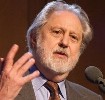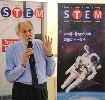Your chance to shape future of public service television in Northern Ireland
Written by David Puttnam
Millions of us continue to watch huge amounts of television – in fact, on average we spend nearly four hours every day in front of our screens. Now, however, thanks to things like BBC Charter review and the uncertain ownership status of Channel 4, many of us are not just watching, but talking about television – about how it should be funded, whether certain channels need protecting and whether it really represents us whoever we are and wherever we live.
In order to find some answers to these questions, I'm chairing a unique inquiry that is looking at how best to reinterpret and secure the future of public service TV, which in Northern Ireland effectively means the BBC, Channel 4, UTV and Channel 5. We are holding an inquiry event with special emphasis on the situation here in Northern Ireland next Monday, April 4, at 1pm. It's being held at the Coleraine campus of Ulster University and has a great line-up of speakers including Michael Wilson (UTV), Margo Harkin (Besom Productions), Ian Kennedy (formerly with Creative Skillset), Pat Loughrey (former head of nations and regions at the BBC) and Colm Murphy (Ulster University).
The inquiry is crucial, because established habits are changing fast. For example, we've seen a significant decline in consumption, particularly among younger audiences, as well as the rise of new streaming services such as Netflix and Amazon, which offer alternatives to the established channels. In this volatile environment, Northern Ireland presents us with some specific challenges.
First, figures from the TV regulator Ofcom show that broadcast TV viewing appears to be falling faster here than in other parts of the UK, with a decline of 15 minutes a day – more than twice that of Scotland. It also appears that it's the public service channels that have been hardest hit, given that Northern Ireland is the only part of the UK in which the share of viewing of these public service channels has fallen below 50%. A significantly higher proportion of respondents told Ofcom that they were watching fewer programmes on public service channels than anywhere else in the UK. Now, this may be because of the widespread availability of RTE services, but it is worth reflecting on whether our main channels are sufficiently attentive to the needs and interests of citizens in Northern Ireland.
Second, use of new TV platforms and technologies is less developed in Northern Ireland than elsewhere in the UK. Take-up of catch-up services (such as iPlayer and UTV Player) and subscription services (such as Netflix), together with ownership of personal video recorders, is lower than in other parts of the UK.
This reflects the smaller amount of disposable income available to households in Northern Ireland, but it remains a concern both if people are not in a position to access new services and if, when faced with a choice, audiences here are more likely to turn to commercial, rather than public service, channels.
Third, we have to ask whether the channels themselves are investing enough here. Northern Ireland has 2.8% of the UK population, but attracts only 1.2% of spending on the BBC's networked programmes. Channel 4 spends less than half of 1% of its budget on original programming in Northern Ireland, which translates to some five hours of first-run output.
Finally, should we be concerned about the takeover of UTV by ITV? How will that change the prospects for both employment in and coverage of Northern Ireland? I was a director some years back of Anglia TV before it was taken over by ITV and then vanished as a brand. Will UTV lose its identity? And how would that loss affect the country more generally?
Of course, there are some giant successes – notably Game of Thrones, which was seed-funded by Northern Ireland Screen to the tune of some £12.5m and has contributed more than £100m to the Northern Ireland economy since 2010. The real question now is can we sustain this production infrastructure and can it be used for public service television in the future?
You can find out more details about Monday's event and how to contribute to the inquiry at www.futureoftv.org.uk. I encourage you to join the debate and to make your voice heard in these important discussions about the TV we have and the TV we want.
Source: Belfast Telegraph


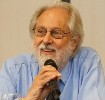

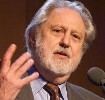

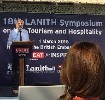

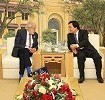
 VNU President Phùng Xuân Nhạ proposed the UK to continue supporting and cooperating with Vietnam in general and VNU in particular in the fields of training, education quality assurance, scholarship provision and student exchange. VNU President also hoped that Their Excellencies Lord David Puttnam and Ambassador Giles Lever would take an interest in the exploring of solutions for graduate job security, further improvement of human resources quality and promotion of science and technology development.
VNU President Phùng Xuân Nhạ proposed the UK to continue supporting and cooperating with Vietnam in general and VNU in particular in the fields of training, education quality assurance, scholarship provision and student exchange. VNU President also hoped that Their Excellencies Lord David Puttnam and Ambassador Giles Lever would take an interest in the exploring of solutions for graduate job security, further improvement of human resources quality and promotion of science and technology development. 